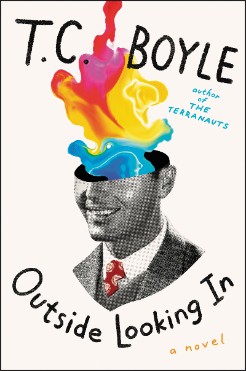Was it poison? Was it out of bounds? An unacceptable risk? She couldn't have said, but she was in a state all day, though she kept telling herself she was being foolish - if anybody in the entire building knew what he was doing, it was her boss. Since she'd come to work for him just over a year ago, she'd never seen him falter - he was precise, cautious, solid, and he didn't take chances with his own safety or his assistants' either. Which you couldn't say for all the chemists who worked here. Some of them - she'd heard the gossip - got sloppy as the day wore on, not bothering with their safety goggles, crossing the floor with pipettes of nitric acid or sodium hydroxide as if they were on their way home with a bag of groceries, even in one case (though this was only rumor), drinking on the job. And who was left to clean up the mess, to accept blame and cover for them if need be - to lie right to the face of the supervisor? Their lab assistants, of course. Who else?
Herr Hofmann wasn't like that. He followed safety procedures to the letter, always, whether it was eight in the morning or five in the afternoon, whether they were preparing the chemicals for the first process of the day or the last. She admired his efficiency, his attention to detail, his professionalism, but there was so much more to him than that. For one thing, he'd had no qualms about taking on a female assistant, the only one in the whole company, and for another he was no cold fish, but a man with red blood in his veins. He was unfailingly pleasant, even on the off days, always with a sympathetic look or a smile for her, and under his lab coat you could see the effects of his bodybuilding and the hours he spent training with the boxing club. His hair might have been thinning and he wore spectacles in the lab, but he swept his hair back like Adolphe Menjou so you hardly noticed, and the spectacles only made him look distinguished. Maybe she was in love with him, maybe that was it, which of course she would never have admitted to anyone on this earth, not even her best friend, Dorothea Meier, and certainly not her mother, who if she had even an inkling that her daughter had a romantic fixation on an older man - a married man, no less, with children - would have marched right up the steps of the building and dragged her home by the scruff of her neck.
It was April. The day was bright beyond the windows, spring in the air, the world singing, and she was in a state.
